Introduction
Morocco, a North African country, is a land of diverse cultures, stunning landscapes, and bustling markets. The country’s vibrant colours, rich history, and delicious cuisine make it a popular destination for travellers seeking adventure, cultural immersion, and relaxation.
Whether you are planning to visit the coastal cities, explore the Atlas Mountains, or wander through the ancient medinas, Morocco has something for everyone. However, planning a trip to Morocco requires careful consideration and preparation to make your travel experience smooth and stress-free. In this comprehensive guide, we will provide you with eight essential steps to help you prepare for your trip to Morocco.
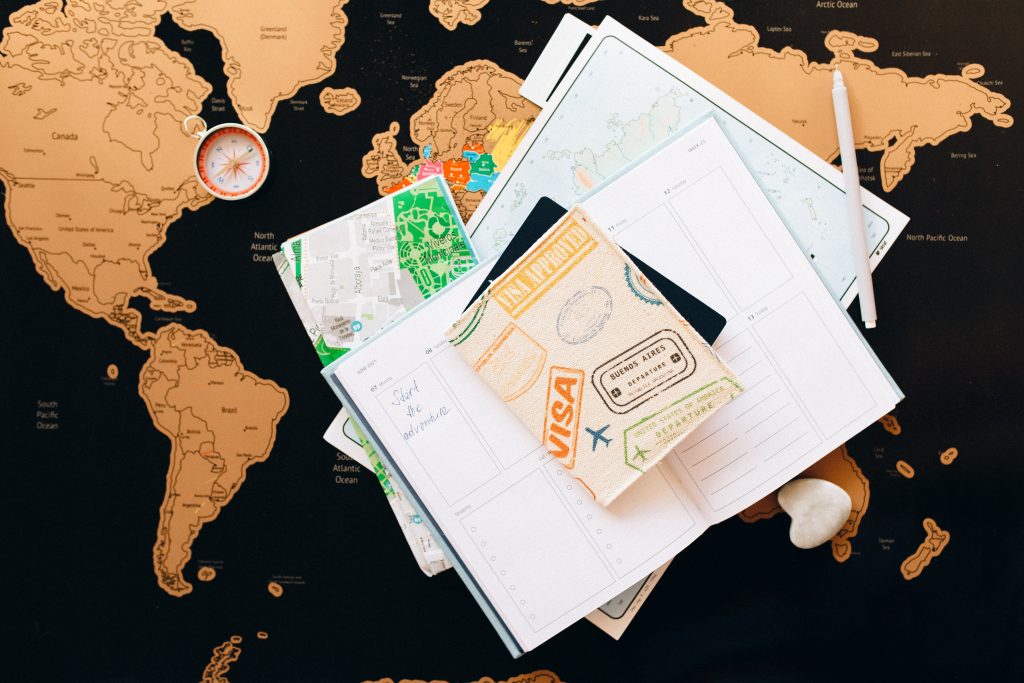
Step 1: Check Visa Requirements for Your Trip to Morocco
Before embarking on your journey to Morocco, one of the crucial steps you must take is to check the visa requirements for your specific nationality. Visa requirements can vary depending on your home country, the purpose of your visit, and the duration of your stay in Morocco. Ensuring you have the correct visa documentation is vital, as it determines your eligibility to enter the country and avoids any immigration issues during your travel.
Here are some essential aspects to consider while checking visa requirements:
Determine Visa-Exempt Countries: Morocco has agreements with certain countries that allow their citizens to enter the country without a visa for specific periods. If you are from a visa-exempt country, you can enjoy visa-free entry to Morocco for up to 90 days for tourism purposes.
Countries such as the United States, Canada, the United Kingdom, and many European countries fall under this category. However, it is essential to double-check the exact duration of visa exemption for your country, as it may vary.
Explore Visa-on-Arrival Options: If your country is not on the visa-exempt list, you may still have the option of obtaining a visa on arrival. Morocco offers visa-on-arrival for some nationalities, which allows you to get your visa upon arrival at the Moroccan airport. However, the duration of stay may be limited to 30 days, and it is advisable to check if your nationality is eligible for this type of visa.
Research E-Visa Availability: Morocco has introduced an electronic travel authorization called the e-Visa, which allows citizens from specific countries to apply for their visas online before their travel.
The e-Visa application process is straightforward and convenient, allowing you to receive your visa approval electronically, which you can present upon arrival in Morocco. This option is available for travellers from countries such as Australia, Japan, South Korea, and more.
Apply for a Consular Visa: If your country does not fall under the visa-exempt, visa-on-arrival, or e-Visa categories, you will need to apply for a consular visa through the Moroccan embassy or consulate in your home country.
This process may require you to submit specific documents, such as a passport with a minimum validity period, a visa application form, passport-sized photographs, a travel itinerary, proof of accommodation, and sufficient financial means to cover your stay in Morocco.
Check Visa Processing Time: Visa processing times may vary depending on the type of visa and the embassy or consulate’s workload. It is essential to check the processing time well in advance to ensure you have sufficient time to obtain your visa before your planned travel date.
Verify COVID-19 Entry Requirements: In light of the COVID-19 pandemic, Morocco may have specific entry requirements, such as presenting a negative PCR test result, vaccination certificates, or quarantine mandates for travellers from certain countries. Stay updated with the latest COVID-19 entry regulations to ensure a smooth and safe travel experience.
By carefully researching and understanding the visa requirements for your trip to Morocco, you can avoid any last-minute hassles and enjoy a stress-free journey to this captivating North African destination. Whether you are planning a short holiday or an extended stay, having the right visa documentation in place will pave the way for an enriching and memorable experience in Morocco.
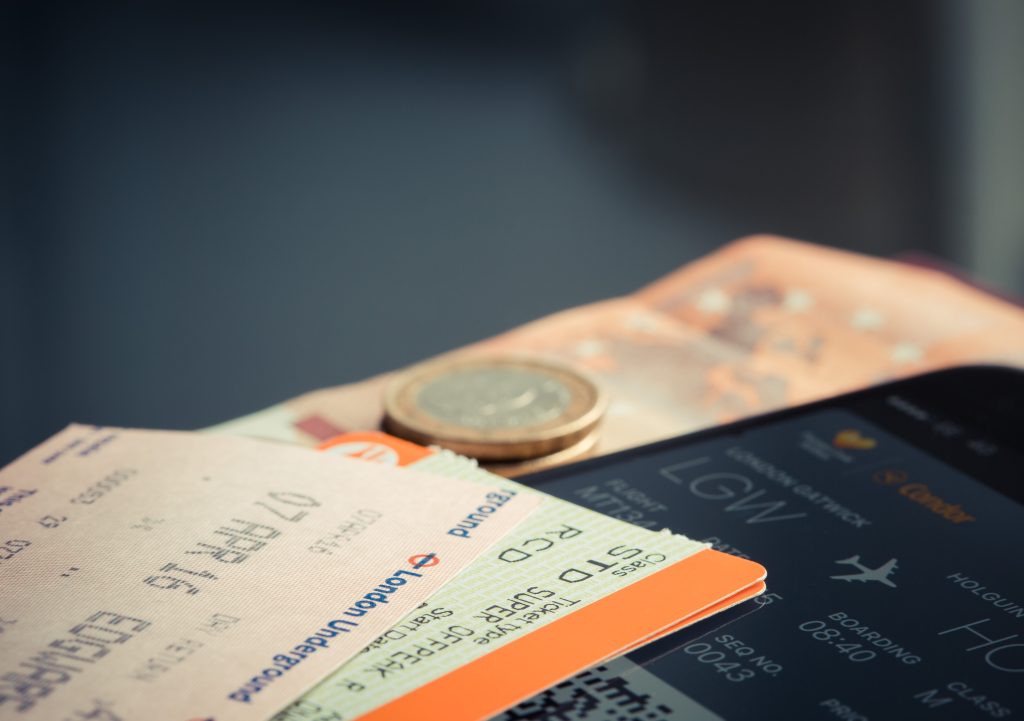
Step 2: Confirm Your Tickets for a Smooth Journey to Morocco
Once you have sorted out the visa requirements for your trip to Morocco, the next essential step is to confirm your travel tickets. Booking your flights in advance will not only save you money but also ensure that you have a seat reserved on your desired travel dates. Here are some tips to help you with ticket confirmation and flight booking:
Research Flight Options: Morocco is well-connected to major cities worldwide, with several airlines offering flights to its major airports, including Casablanca, Marrakech, and Rabat. Take the time to research different airlines and flight options to find the most suitable and cost-effective route for your journey. Consider factors such as layovers, travel time, and airport connections.
Book Early for Better Deals: Flight ticket prices tend to fluctuate, and booking early can often result in more affordable fares. Airlines often release discounted tickets months in advance, so keep an eye out for promotions and sales to secure the best deals. Additionally, booking early increases the chances of getting seats on your preferred flights, especially during peak travel seasons.
Consider Alternate Airports: If you are flexible with your travel plans, consider flying into alternate airports near your final destination in Morocco. Some cities, like Marrakech and Fez, have smaller airports that may offer more affordable flight options compared to major international airports like Casablanca. Be sure to consider transportation options from the alternate airport to your desired location.
Opt for Round-Trip Tickets: If you have a fixed travel schedule, booking round-trip tickets can often be more cost-effective than purchasing one-way tickets separately. Round-trip tickets may also offer additional benefits, such as consistent airline services and the convenience of a single booking.
Check for Baggage Allowance and Fees: Different airlines have varying baggage policies, including weight and size restrictions. Before confirming your flight, check the baggage allowance and any additional fees for checked baggage to avoid surprises at the airport. Some airlines may also offer discounts on baggage fees if paid in advance.
Review Cancellation and Refund Policies: While we hope that your travel plans go smoothly, unexpected situations may arise, necessitating changes or cancellations. Before confirming your tickets, review the airline’s cancellation and refund policies to understand your options in case you need to make any adjustments to your travel itinerary.
Consider Travel Insurance: Travel insurance can provide an added layer of protection for your trip, including coverage for trip cancellations, flight delays, lost baggage, and medical emergencies. It is a wise investment to safeguard your travel investment and provide peace of mind during your journey.
By carefully confirming your travel tickets and taking advantage of the best flight options, you set the foundation for a seamless and enjoyable journey to Morocco. A well-planned trip with confirmed flight reservations will allow you to focus on exploring the beauty and culture of this enchanting North African country without any worries about travel logistics.
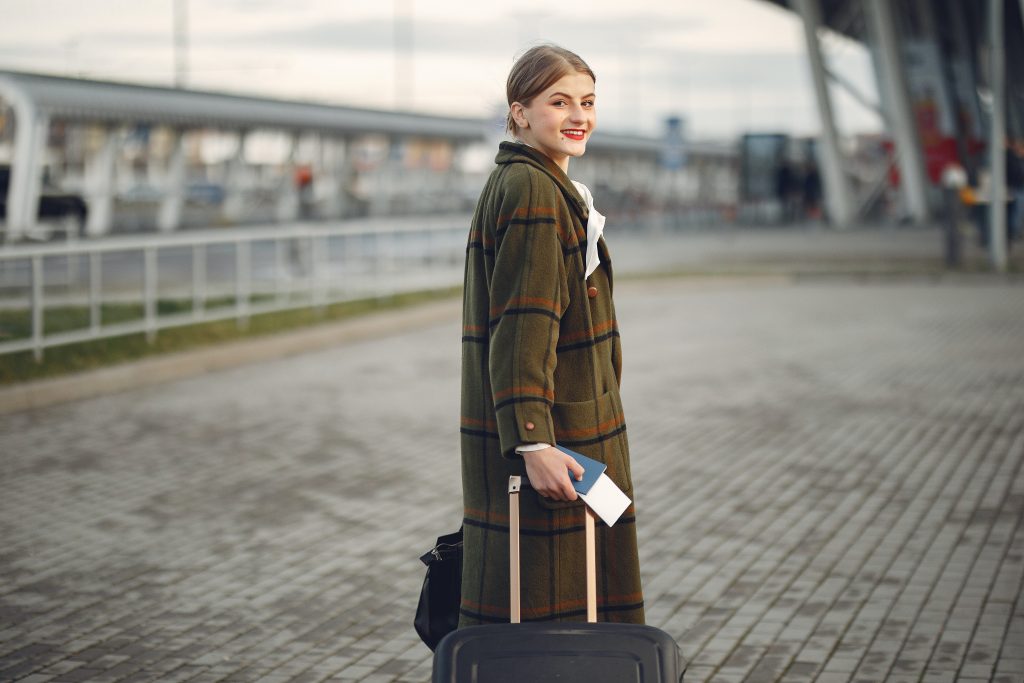
Step 3: Budget Your Trip to Morocco Wisely
As you embark on your journey to Morocco, having a well-planned budget is crucial to ensuring a rewarding and stress-free travel experience. Budgeting allows you to allocate your funds wisely, make the most of your trip, and avoid overspending. Here are some essential tips to help you budget your trip to Morocco:
Determine Your Total Travel Expenses: Begin by calculating the total estimated cost of your trip. Consider factors such as airfare, accommodation, transportation within Morocco, food, activities, souvenirs, and travel insurance. Having a clear picture of your expected expenses will serve as the foundation for creating a realistic budget.
Research Accommodation Options: Accommodation costs can significantly impact your overall travel expenses. Research different types of accommodation, from luxury hotels to budget-friendly hostels and guesthouses. Compare prices and amenities to find options that suit your preferences and fit within your budget.
Allocate Funds for Activities and Experiences: Morocco offers a plethora of activities and experiences, from exploring ancient medinas to camel treks in the Sahara desert. Allocate a portion of your budget for the activities and excursions you wish to participate in. Research the costs of guided tours, entrance fees to historical sites, and any additional expenses for unique experiences.
Consider Local Transportation Costs: Transportation within Morocco can vary depending on your itinerary. If you plan to travel between cities, consider the cost of train or bus tickets. For shorter distances, local taxis and shared transportation options may be more affordable. Budgeting for transportation ensures that you can explore different regions of Morocco without exceeding your budget.
Plan for Meals and Dining Expenses: Moroccan cuisine is renowned for its delicious flavours and variety. Budget for meals and dining experiences, including trying local delicacies at restaurants and street food vendors. Keep in mind that dining costs can vary depending on the location and type of establishment.
Account for Shopping and Souvenirs: Morocco’s vibrant markets, known as souks, offers an array of unique crafts, textiles, and souvenirs. Plan for shopping expenses, but exercise caution to avoid overspending on impulse purchases. Bargaining is a common practice in Moroccan markets, so consider haggling for better prices.
Create a Contingency Fund: Unexpected expenses can arise during your travels, so it’s essential to have a contingency fund. Set aside some money as an emergency fund to cover unforeseen circumstances, such as unexpected transportation changes or medical expenses.
Track Your Spending: Once you arrive in Morocco, keep track of your expenses to ensure you stay within your budget. Use budgeting apps or simple spreadsheets to record your spending, making it easier to adjust your plans if needed.
Allow for Flexibility: While budgeting is essential, it’s also essential to allow for some flexibility in your plans. Leave room in your budget for spontaneous activities or unexpected opportunities that may arise during your trip.
By budgeting wisely, you can make the most of your trip to Morocco without worrying about financial constraints. With a well-planned budget in place, you can immerse yourself in the beauty of Morocco’s landscapes, indulge in its diverse culinary delights, and embrace the rich culture and history of this enchanting country.
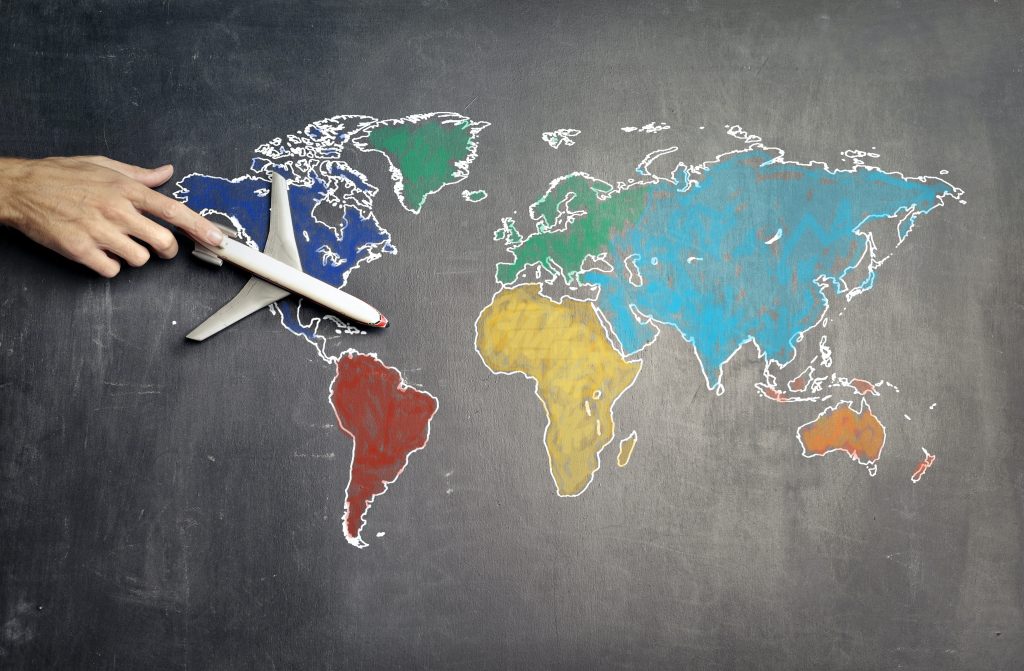
Step 4: Hire a Reputable Tour Agency for a Hassle-Free Moroccan Adventure
When planning your trip to Morocco, enlisting the services of a reputable tour agency can significantly enhance your travel experience and provide you with valuable support throughout your journey. From expertly crafted itineraries to local insights and 24/7 assistance, a tour agency can be your trusted companion as you explore the wonders of this North African gem. Here’s why hiring a tour agency is a smart decision for your Moroccan adventure:
Tailored Itineraries: A reputable tour agency will offer a variety of well-crafted itineraries that cater to different interests and travel preferences. Whether you’re seeking cultural immersion in ancient cities, an adrenaline-fueled adventure in the Sahara desert, or a laid-back coastal retreat, a tour agency can tailor the perfect itinerary to suit your desires.
Local Expertise: With an in-depth knowledge of Morocco’s culture, history, and top attractions, local tour guides provided by the agency can offer valuable insights that guidebooks might miss. Their familiarity with hidden gems, local customs, and language can enrich your travel experience and create unforgettable memories.
Time and Energy Saving: Planning a trip to Morocco can be time-consuming and overwhelming, especially if you’re unfamiliar with the country. By entrusting the logistics to a tour agency, you can save precious time and energy. From arranging transportation and accommodation to handling necessary permits and paperwork, the agency takes care of the nitty-gritty details, allowing you to focus on enjoying your adventure.
Safety and Security: Traveling in a foreign country may raise concerns about safety and security. A reputable tour agency prioritizes the well-being of its clients and ensures that you travel with peace of mind. They partner with trusted service providers, adhere to safety standards, and have contingency plans in place for any unforeseen circumstances.
Access to Exclusive Experiences: A tour agency can grant you access to exclusive experiences and cultural encounters that are not easily accessible to independent travellers. Whether it’s a private guided tour through a historical site or an immersive cooking class with a local chef, these special experiences can add depth to your journey.
24/7 Support: Traveling to a foreign country can present unexpected challenges. With a tour agency, you have access to 24/7 support, providing assistance and guidance whenever you need it. Whether you encounter a sudden change in your travel plans or have a question, the agency’s support team is just a phone call away.
Group or Solo Travel Options: Tour agencies offer various travel options, including group tours for those who prefer a social experience and solo tours for independent travellers seeking personalized adventures. Choose the option that aligns with your travel style and preferences.
Cost-Effective Packages: Contrary to popular belief, hiring a tour agency can often lead to cost-effective travel arrangements. The agency’s extensive network of partners and service providers allows them to negotiate competitive rates for accommodation, transportation, and activities, resulting in a value-packed experience.
Before choosing a tour agency, read reviews, check their credentials, and inquire about their offerings to ensure they align with your travel goals. A reputable tour agency like “Morocco Tours” can be your gateway to unlocking the best of Morocco’s enchanting landscapes, rich heritage, and warm hospitality. With their expertise and personalized approach, you can embark on a seamless and unforgettable Moroccan journey.
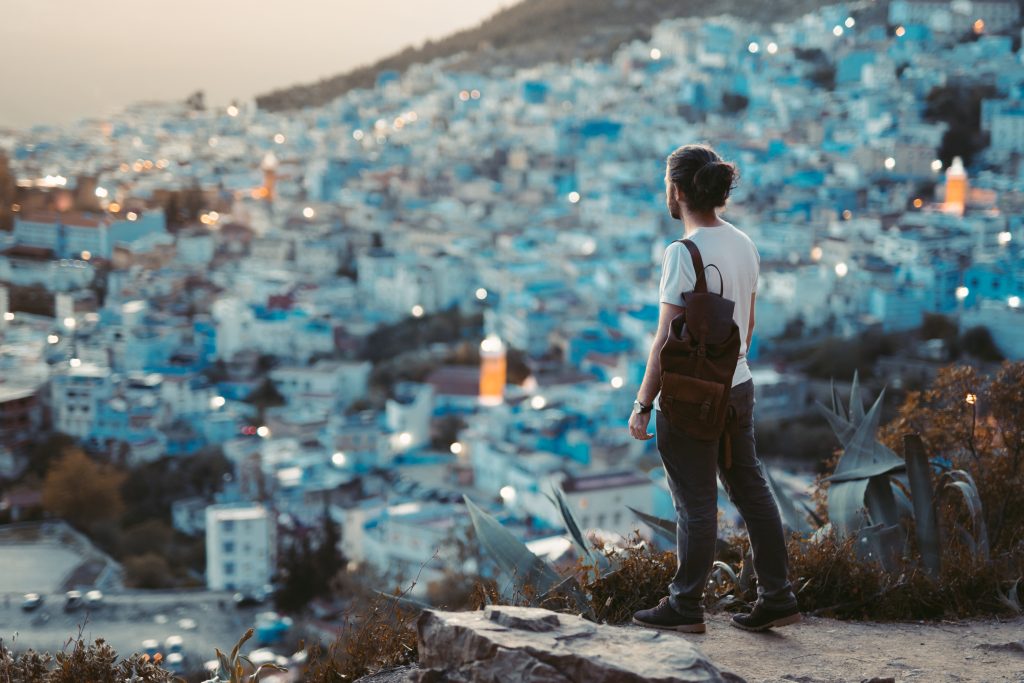
Step 5: Plan Your Activities for an Enriching Moroccan Adventure
A well-planned itinerary is the key to making the most of your trip to Morocco. With a myriad of captivating attractions and diverse experiences awaiting you, careful planning ensures that you can immerse yourself in the essence of this enchanting country. Here’s how you can plan your activities for an enriching Moroccan adventure:
Research Morocco’s Top Attractions: Begin by researching Morocco’s top attractions and landmarks. From the bustling medinas of Marrakech and Fes to the stunning blue streets of Chefchaouen and the ancient ruins of Volubilis, Morocco is brimming with fascinating sites to explore. Make a list of must-visit places based on your interests and allocate ample time for each location.
Embrace Cultural Experiences: Morocco’s culture is as vibrant as its landscapes. Delve into authentic cultural experiences to understand the local way of life. Consider attending traditional music performances, joining a tea ceremony, or trying your hand at Moroccan cooking. Engaging with locals and participating in their customs will leave you with unforgettable memories.
Seek Adventure in the Great Outdoors: Morocco’s diverse geography offers ample opportunities for outdoor enthusiasts. Trek through the breathtaking Atlas Mountains, experience the thrill of camel riding in the Sahara Desert or indulge in water activities along the Atlantic coastline. Whether you’re an adrenaline junkie or a nature lover, Morocco caters to a wide range of outdoor pursuits.
Discover Local Markets and Souks: Moroccan markets, known as souks, are a treasure trove of unique handicrafts, spices, and traditional goods. Explore the bustling alleys and stalls of souks in cities like Marrakech and Fes. Haggle with vendors, shop for souvenirs, and immerse yourself in the vibrant atmosphere of these traditional marketplaces.
Attend Festivals and Events: If your trip coincides with local festivals and events, seize the opportunity to witness the rich cultural celebrations that unfold across the country. Events like the Marrakech International Film Festival and the Mawazine Music Festival offer a glimpse into Morocco’s contemporary arts and music scene.
Factor in Free Time: While it’s essential to have a structured itinerary, leaving some free time in your schedule allows for spontaneity and serendipitous discoveries. Wander through the charming streets, mingle with locals, and embrace the unplanned moments that often become the highlight of any journey.
Consider Guided Tours: Engaging in guided tours can provide valuable insights and context to the places you visit. Expert guides can shed light on historical sites, share local folklore, and offer off-the-beaten-path recommendations. Whether you opt for private or group tours, they add depth and understanding to your explorations.
Be Mindful of Local Customs: As you plan your activities, be mindful of local customs and traditions. Respectful dress, especially when visiting religious sites, is important. It’s also crucial to ask for permission before photographing people, especially in rural areas, to demonstrate cultural sensitivity.
Mix Urban and Rural Experiences: Morocco offers a beautiful blend of urban sophistication and rustic charm. Balance your itinerary by incorporating experiences in both bustling cities and serene countryside settings. Each region offers a distinct character, and combining the two provides a holistic view of Morocco’s diversity.
Stay Flexible: Despite careful planning, unforeseen events or recommendations from fellow travellers may inspire you to make spontaneous changes to your itinerary. Stay flexible and embrace these opportunities, as they often lead to unforgettable experiences and cherished memories.
By planning your activities thoughtfully, you can craft an itinerary that captures the essence of Morocco and fulfils your travel aspirations. Each day will be an exciting adventure, and you’ll return home with a profound appreciation for the rich tapestry of Moroccan culture and landscapes.
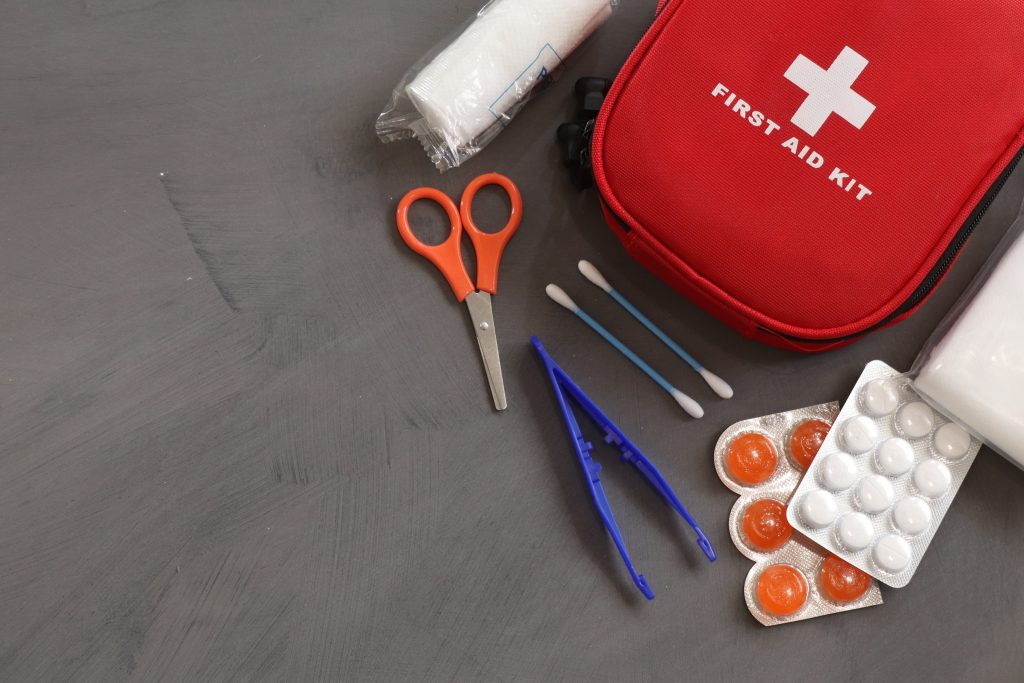
Step 6: Prepare a Travel Medicine Kit for a Healthy Journey
A well-equipped travel medicine kit is an essential companion for any journey, and Morocco is no exception. As you embark on your adventure through this captivating country, it’s crucial to prioritize your health and well-being. Here’s how to prepare a travel medicine kit to ensure a healthy and enjoyable journey in Morocco:
Essential Medications: Begin by including any prescription medications you currently take. Ensure you have an adequate supply to last the duration of your trip, plus a few extra days in case of unforeseen delays. Additionally, pack over-the-counter medications for common ailments like headaches, allergies, colds, and upset stomachs.
First Aid Supplies: A basic first aid kit should contain adhesive bandages, antiseptic wipes, gauze pads, adhesive tape, tweezers, and scissors. These supplies can be invaluable for minor injuries and wound care during your travels.
Medications for Travel-Related Ailments: Consider adding medications specifically for travel-related ailments. Anti-diarrheal medication, rehydration salts, and motion sickness pills can help you manage common travel discomforts effectively.
Sun Protection: Morocco’s sunny climate calls for adequate sun protection. Pack sunscreen with a high SPF, lip balm with SPF, and a wide-brimmed hat to shield yourself from the sun’s rays.
Insect Repellent: While Morocco is a captivating destination, it’s also home to insects that may carry diseases like malaria and Zika. Ensure your travel medicine kit includes insect repellent with DEET to protect yourself from bites.
Hand Sanitizer and Disinfectant Wipes: Maintain good hygiene on the go by packing hand sanitiser and disinfectant wipes. These items are particularly useful in areas with limited access to water and soap.
Allergy Medications: If you have allergies, bring antihistamines or other allergy medications to manage symptoms triggered by environmental factors or food.
Pain Relievers: Headaches and muscle pain can occur during travel due to various factors. Include pain relievers like acetaminophen or ibuprofen to address any discomfort.
Motion Sickness Remedies: If you’re susceptible to motion sickness, pack remedies such as motion sickness patches or medication to alleviate symptoms during long drives or bumpy rides.
Travel Vaccinations: Before travelling to Morocco, consult with a travel medicine specialist or your healthcare provider to determine if any vaccinations are necessary. Vaccinations for diseases like hepatitis A and typhoid are commonly recommended for travellers to Morocco.
COVID-19 Precautions: Given the ongoing global pandemic, it’s vital to adhere to COVID-19 precautions during your journey. Pack face masks, hand sanitisers, and follow local guidelines to protect yourself and others from the virus.
Personal Medical Information: Carry a list of your essential medical information, including allergies, medications, and emergency contact details. This information can be crucial in case of a medical emergency.
Remember to pack your travel medicine kit in a waterproof and easily accessible container. Keep it with you during your travels, and ensure your fellow travel companions are aware of its location and contents. With a well-prepared travel medicine kit, you can focus on exploring Morocco’s wonders with peace of mind and optimal health.
Living in the UAE and looking for schooling opportunities abroad? Then you should check out this complete guide
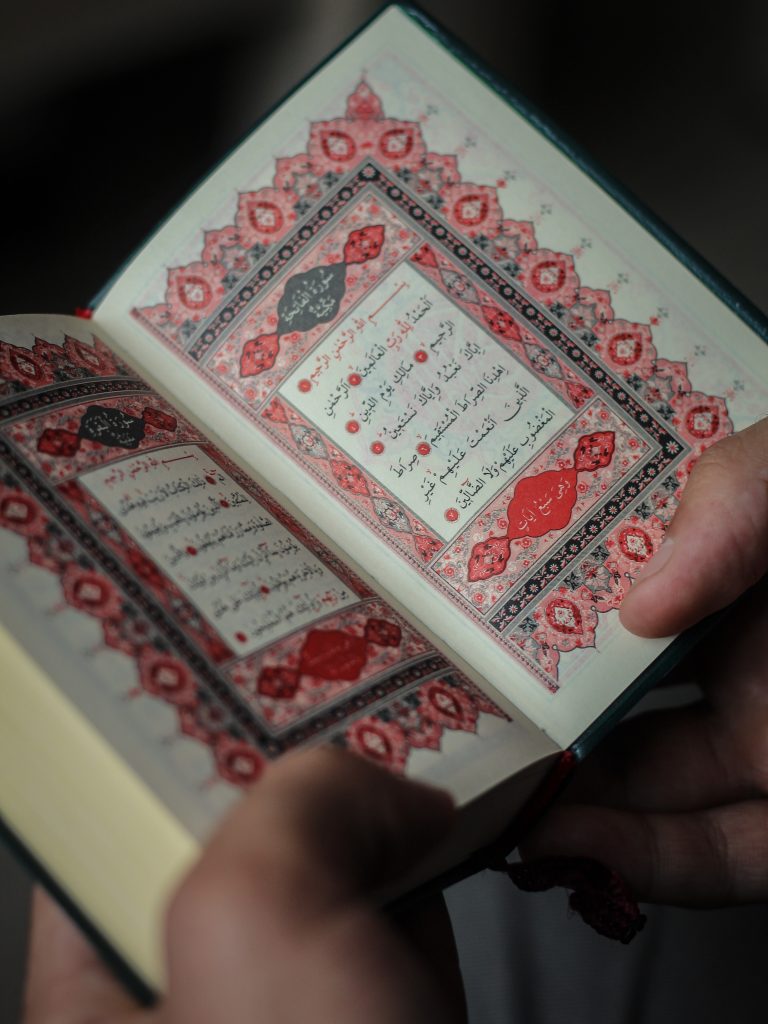
Step 7: Learn a Few Arabic Words for Enriched Cultural Experiences
As you prepare for your journey to Morocco, take the opportunity to learn a few basic Arabic words and phrases. While many Moroccans speak French or English, making an effort to communicate in their native language can greatly enhance your cultural experiences and interactions with the local people. Here are some essential Arabic words and phrases to learn before your trip:
Greetings:
Hello: مرحباً (Marhaba)
Good morning: صباح الخير (Sabah al-khayr)
Good evening: مساء الخير (Masa’ al-khayr)
Thank you: شكراً (Shukran)
Yes: نعم (Na’am)
No: لا (La)
Polite Expressions:
Please: من فضلك (Min fadlak)
Excuse me: عذراً (Udhurran)
Sorry: آسف (Aasif)
You’re welcome: عفواً (Afwan)
How are you?: كيف حالك؟ (Kayfa halak?)
Numbers:
One: واحد (Wahid)
Two: اثنان (Ithnan)
Three: ثلاثة (Thalatha)
Ten: عشرة (Asharah)
Twenty: عشرون (Ishrun)
Common Phrases:
Where is…?: أين…؟ (Ayna…?)
How much is this?: بكم هذا؟ (Bikram hatha?)
I don’t understand: أنا لا أفهم (Ana la afham)
My name is…: اسمي… (Ismi…)
Can you help me?: هل يمكنك مساعدتي؟ (Hal yumkinuka musa’adati?)
Cultural Phrases:
Ramadan Kareem: رمضان كريم (Ramadan blessings)
Inshallah: إن شاء الله (God willing)
Barakah: بركة (Blessing)
Bismillah: بسم الله (In the name of Allah)
Masha’Allah: ما شاء الله (God has willed)
Directions:
Left: يسار (Yasar)
Right: يمين (Yamin)
Straight: على طول (Ala tawl)
Turn: حنى (Henna)
Stop: توقف (Tawaqaf)
Learning these basic Arabic words and phrases will not only show respect for the local culture but also open doors to meaningful interactions and experiences with the Moroccan people.
While language barriers may exist, making an effort to communicate in Arabic will likely be met with warm smiles and appreciation from the locals. Engaging with the language enriches your journey and creates lasting memories of your time in Morocco.
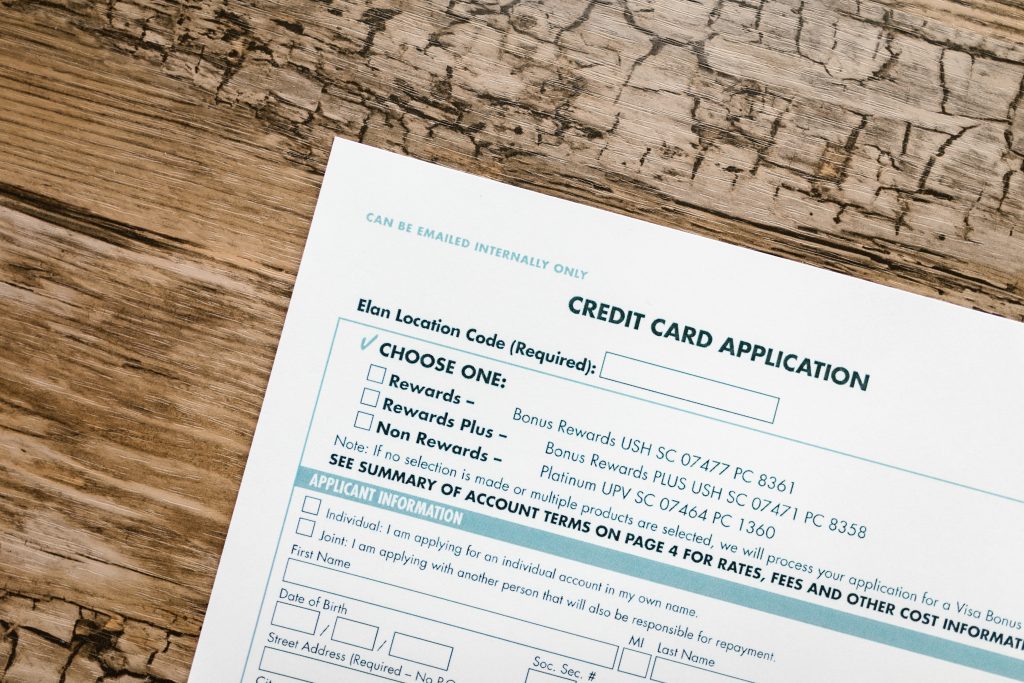
Step 8: Don’t Forget Travel Insurance – Your Safety Net for Peace of Mind
As you plan your unforgettable adventure to Morocco, one essential aspect that should never be overlooked is obtaining comprehensive travel insurance. Travel insurance acts as your safety net, providing financial protection and peace of mind during your journey.
It is a crucial step in ensuring that you are well-prepared to handle unexpected situations and emergencies that may arise while travelling. Here are some compelling reasons why you should never forget to purchase travel insurance for your trip to Morocco:
Medical Emergencies: While exploring the enchanting landscapes and vibrant cities of Morocco, an unexpected medical emergency can disrupt your travel plans. Travel insurance covers emergency medical expenses, including doctor consultations, hospital stays, and medications. In the event of a medical emergency, having travel insurance can spare you from incurring significant out-of-pocket expenses.
Trip Cancellation and Interruption: Life is unpredictable, and sometimes unforeseen circumstances may force you to cancel or cut short your trip to Morocco. Travel insurance provides coverage for trip cancellation or interruption due to covered reasons such as illness, injury, or other unexpected events. This means you can recover non-refundable expenses, such as flight tickets and accommodation costs.
Lost or Delayed Baggage: Misplaced or delayed baggage can be a major inconvenience during your travels. With travel insurance, you can claim reimbursement for essential items you need while waiting for your baggage to be located or replaced. This coverage ensures you can continue your journey without major disruptions.
Travel Delays: Flight delays are not uncommon and can lead to additional expenses for food, accommodation, and transportation. Travel insurance covers these expenses, providing financial assistance when you experience travel hiccups.
Travel Document Replacement: Losing your passport or other essential travel documents can be distressing while abroad. Travel insurance offers support and coverage for the replacement of lost or stolen travel documents, helping you navigate through the necessary procedures with ease.
Emergency Assistance Services: Travel insurance includes 24/7 emergency assistance services. Whether you need medical advice, assistance with travel arrangements, or language interpretation, these services provide invaluable support when you’re far from home.
Adventure Activities Coverage: Morocco offers a wide range of adventurous activities, such as desert excursions and mountain trekking. Travel insurance can provide coverage for these activities, ensuring you can fully immerse yourself in the local experiences without worry.
Financial Protection: Travel insurance acts as a financial safety net, protecting your investment in the trip to Morocco. Unexpected incidents can be financially draining, but with adequate insurance coverage, you can mitigate potential losses.
Peace of Mind: Perhaps the most significant reason to have travel insurance is the peace of mind it brings. Knowing that you are protected against unforeseen circumstances allows you to fully enjoy your Moroccan adventure, immersing yourself in the culture, history, and beauty that this captivating country has to offer.
Before you embark on your Moroccan journey, take the time to compare travel insurance policies and choose one that best suits your needs and travel plans. Ensure that the policy covers all the essential aspects, including medical emergencies, trip cancellation, baggage loss, and travel delays.
Don’t underestimate the importance of travel insurance – it’s a small investment that can make a significant difference in ensuring a smooth and worry-free trip to Morocco.
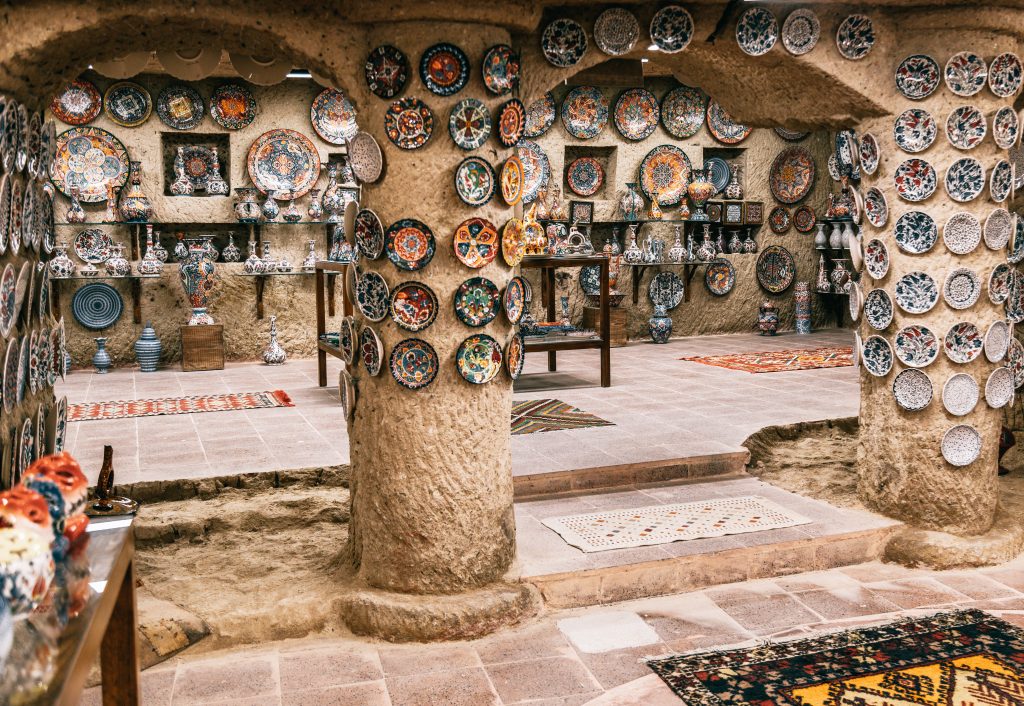
Step 9: Respect Local Customs and Traditions – Embrace Cultural Sensitivity
As you prepare for your exciting journey to Morocco, it’s essential to familiarize yourself with the local customs and traditions of this diverse and culturally rich country.
Embracing cultural sensitivity and respect for local practices will enhance your travel experience and foster positive interactions with the Moroccan people. Here are some key aspects to consider when it comes to respecting local customs and traditions in Morocco:
Dress Modestly: Morocco is a predominantly Muslim country with strong cultural values regarding modesty in attire. When exploring public places and religious sites, it’s respectful to dress modestly. For both men and women, covering shoulders and knees is recommended. Women may also consider carrying a scarf to cover their hair if visiting mosques or other religious places.
Greetings and Polite Phrases: Moroccans are known for their warm hospitality and friendly nature. A simple “hello” or “salam alaykum” (peace be upon you) can go a long way in starting conversations and building connections. Learning a few basic Arabic phrases, such as “thank you” (shukran) and “please” (min flak/lik), will be appreciated by the locals and show your respect for their language and culture.
Public Displays of Affection: While public displays of affection are common in some cultures, they are generally not customary in Morocco. It’s advisable to refrain from such displays to avoid causing discomfort or offence to the locals.
Photography Etiquette: Morocco is a photographer’s paradise, with picturesque landscapes and vibrant markets. However, it’s essential to ask for permission before taking photos of people, especially in more conservative areas. Some individuals may feel uncomfortable having their picture taken, and respecting their wishes is essential.
Eating Customs: Moroccan cuisine is a delightful fusion of flavours and aromas. When dining in local restaurants or with Moroccan families, it’s customary to eat with your right hand, as the left hand is considered unclean. Additionally, wait for the host to begin eating before you start your meal, as a sign of respect.
Religious Observance: Morocco’s cultural identity is deeply intertwined with Islam. During the holy month of Ramadan, when Muslims fast from sunrise to sunset, it’s important to be respectful and avoid eating, drinking, or smoking in public during daylight hours.
Bargaining in Souks: The bustling souks (markets) in Morocco offer a variety of handicrafts, spices, and other goods. Bargaining is a common practice in souks, but it’s essential to do so with respect and in a friendly manner. Engaging in polite negotiations is part of the cultural experience, and it’s an opportunity to interact with local vendors.
Accepting Invitations: If invited to a Moroccan home, accepting the invitation is a wonderful opportunity to experience Moroccan hospitality and culture firsthand. It’s customary to bring a small gift, such as pastries or sweets, as a gesture of appreciation to the host.
Public Behavior: Moroccans place a high value on politeness and good manners. Being respectful in public spaces, such as refraining from loud or disruptive behaviour, is appreciated and fosters positive interactions with the locals.
Understanding Local Sensitivities: Like any country, Morocco has its social norms and sensitivities. It’s essential to be aware of local customs and practices, and if in doubt, observe and follow the lead of the locals.
By respecting and embracing the local customs and traditions, you’ll not only enrich your travel experience but also contribute to a positive and harmonious cultural exchange. Being culturally sensitive allows you to connect more deeply with the Moroccan culture, making your journey to this captivating country even more rewarding.

Step 10: Stay Hydrated and Mindful of Food Safety – Prioritize Your Well-Being
As you embark on your adventure in Morocco, ensuring your well-being is of utmost importance. Staying hydrated and practising food safety are essential aspects of maintaining good health during your travels. The Moroccan climate and unique cuisine offer a delightful experience, but it’s crucial to take certain precautions to protect your health. Here are some tips to help you stay hydrated and mindful of food safety while exploring Morocco:
Drink Plenty of Water: Morocco’s climate can be quite hot, especially during the summer months. To avoid dehydration, make sure to drink plenty of water throughout the day. Carry a reusable water bottle and refill it at trusted sources, such as your accommodation or reputable restaurants.
Avoid Tap Water: While many hotels and restaurants in major cities provide safe drinking water, it’s generally best to avoid tap water. Stick to bottled water or opt for boiled or filtered water when available.
Hydrating Foods: In addition to water, you can stay hydrated by consuming hydrating foods such as fruits and vegetables with high water content. Watermelon, cucumber, oranges, and tomatoes are excellent choices to keep you refreshed.
Be Mindful of Ice and Raw Foods: While Moroccan cuisine is tantalizing, exercise caution with certain foods to prevent foodborne illnesses. Avoid consuming ice in drinks from street vendors and be cautious with raw or undercooked foods. Stick to cooked and freshly prepared dishes from reputable establishments.
Hand Hygiene: Maintaining proper hand hygiene is vital in preventing food contamination. Always wash your hands with soap and water before eating, especially if you’ve been exploring outdoor markets or handling currency.
Food from Reputable Sources: When dining out, choose restaurants and food vendors with good reviews and a clean appearance. This will reduce the risk of foodborne illnesses and ensure that you enjoy your culinary experiences without worry.
Dietary Restrictions and Allergies: If you have any dietary restrictions or allergies, communicate them clearly to restaurant staff or tour guides to avoid any potential health risks.
Avoid Overeating: Moroccan cuisine is rich and flavorful, but try not to overindulge, as overeating can lead to discomfort and sluggishness during your travels.
Seek Medical Advice: If you experience any health issues during your trip, seek medical advice promptly. Many larger cities in Morocco have reputable medical facilities and clinics that cater to international travellers.
Pack Medications: If you have any pre-existing medical conditions, ensure you have an adequate supply of necessary medications. Carry them in their original packaging and consider bringing a copy of your prescription in case of emergencies.
By staying hydrated and practising food safety, you can fully immerse yourself in the vibrant culture and captivating landscapes of Morocco without compromising your health. Prioritizing your well-being allows you to savour every moment of your journey and create cherished memories that will last a lifetime. Happy and healthy travels in Morocco!
Conclusion
Travelling to Morocco offers a unique and enchanting experience that blends cultural immersion, history, and natural beauty. By following this comprehensive travel guide with ten essential steps, you can ensure a smooth and memorable journey to this captivating North African gem. From obtaining the necessary visa to planning your activities and embracing local customs, careful preparation will allow you to make the most of your adventure in Morocco. As you explore the bustling medinas, traverse the majestic Atlas Mountains, or relax on the stunning beaches, let the spirit of Morocco captivate your soul and create lasting memories. Happy travels!
FAQs:
Q1: Do I need travel insurance to visit Morocco?
Yes, it is highly recommended to have travel insurance when visiting Morocco. Travel insurance protects against unexpected events and ensures you have a smooth and stress-free trip.
Q2: Why is travel insurance important in Morocco?
Travel insurance is essential in Morocco as it covers unforeseen events such as trip cancellations, medical emergencies, and lost baggage, providing financial protection and peace of mind.
Q3: Can I get insurance in Morocco as a visitor?
Yes, you can get travel insurance in Morocco as a visitor. Many reputable insurance companies offer travel insurance for visitors to Morocco.
Q4: Is it ok not to have travel insurance?
While it is not mandatory, having travel insurance is highly recommended. It can save you from significant financial losses and assist in emergencies.
Q5: How much does travel insurance cost in Morocco?
The cost of travel insurance in Morocco varies depending on factors such as the coverage you choose, your age, the duration of your trip, and any pre-existing medical conditions.
